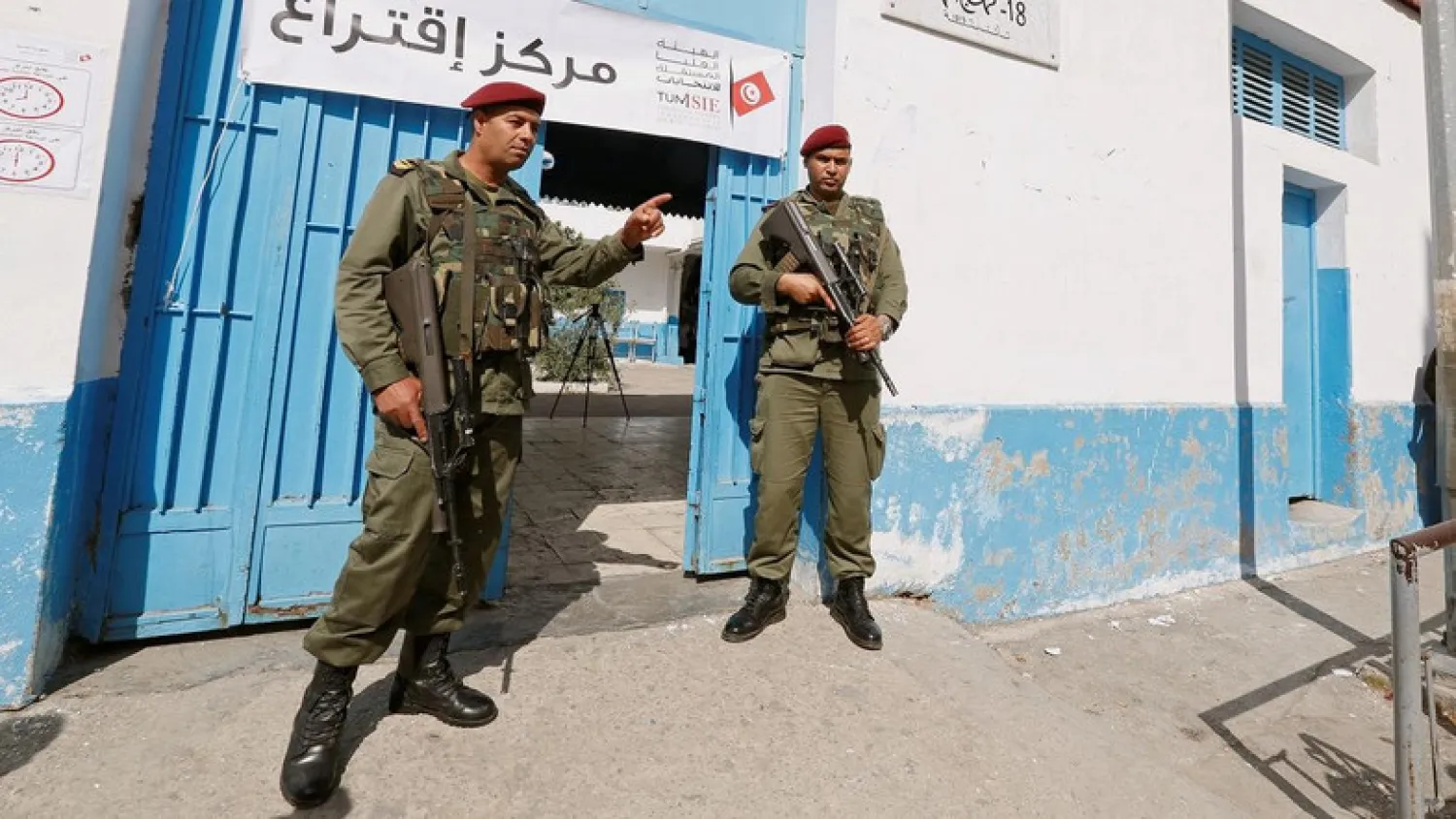The first phase of the municipal elections in Tunisia registered a low turnout of security and army personnel, who are participating for the first time in the elections. The movement appeared to be too slow in a number of polling stations, which opened at 8 am on Sunday in the Tunisian capital.
The situation in the majority of the polling stations in Gafsa (south-west of Tunisia) and Sfax (central-eastern Tunisia) was not different, according to the independent Mourakiboun (observers) network, which monitored the voting process of the members of the security services and the army.
The head of the Independent High Electoral Commission, Mohamed Tlili al-Mansri, said during his visit to a polling station in the center of the capital, that the turnout of security and military personnel was “weak during the first hours of voting, not exceeding 1,237 security and military elements out of more than 36,000 registered voters, or percent of the total registered voters.”
Two Tunisian security unions expressed their readiness to participate in the Tunisian municipal elections, while the Tunisian Union of the Internal Security Forces, which includes the largest number of security personnel, boycotted the elections due to the “lack of full electoral rights” for its members.
The union considered that some of the measures taken by the High Electoral Commission regarding the vote of the security and military members had “significant shortcomings”. However, a member of the Commission, Adel El-Briensi, said that these measures were aimed at “protecting the personal data of the security forces and the army.”
Among these measures is the prohibition of the use of ballot ink in polling stations for security and military personnel, unlike civilians, for “security reasons” and postponing the counting of security and military votes until next Sunday.
In remarks to Asharq Al-Awsat, Briensi said that Commission has taken “all precautions to ensure the safe participation of the security forces and the army, as it prevented taking pictures of officers in the polling stations, and prohibited polling institutions from asking them about the lists they have voted for.”
Municipal elections in Tunisia are held in two stages; the first was held on Sunday for security and military men, while the second phase will take place next Sunday, and will be reserved for civilian voters.









